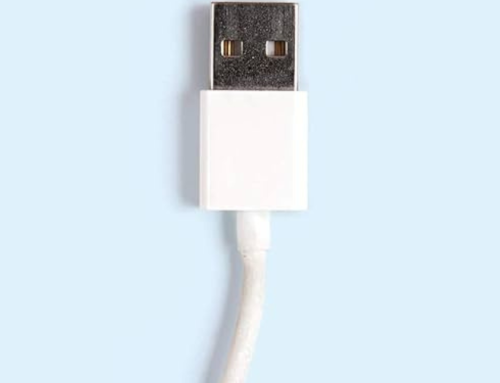
In contemporary discourse, mental health myths have entrenched themselves as formidable barriers to progress, casting shadows of misunderstanding and stigma over the lives of millions. It is imperative to confront and debunk these misconceptions to foster a society that embraces mental health with compassion and knowledge.
At the forefront of these myths is the fallacy that individuals grappling with mental health challenges are inherently weak or lacking in resilience. This misconception, debunked by ample scientific evidence, belies the intricate web of genetic, biological, environmental, and social factors that contribute to mental illness. Rather than a mark of fragility, seeking assistance for mental health concerns reflects resilience and courage, demanding individuals to confront their struggles and pursue avenues of healing.
Another prevailing myth asserts that mental health issues are rare aberrations, afflicting only a small fraction of the populace. This myth crumbles under the weight of statistical reality, as studies consistently reveal the pervasive nature of mental health conditions across demographics. By debunking the myth of rarity, we acknowledge the universality of mental health struggles, fostering an environment where individuals feel validated in seeking support and understanding.
Moreover, the notion that mental health treatments are ineffective or superfluous perpetuates a harmful cycle of suffering. This myth, debunked by extensive research, undermines the efficacy of evidence-based interventions such as therapy and medication. By dispelling this misconception, we empower individuals to prioritize their mental well-being, embracing avenues of treatment that hold the promise of healing and restoration.
A particularly insidious myth perpetuates the stereotype that individuals with mental health conditions are inherently violent or dangerous. This damaging falsehood not only amplifies stigma but also obstructs efforts to cultivate empathy and support for those navigating mental illness. Contrary to this myth, empirical evidence overwhelmingly demonstrates that individuals with mental health disorders are more likely to be victims of violence than perpetrators. By debunking this myth, we cultivate a culture of compassion and understanding, where individuals are judged not by labels but by their intrinsic worth and humanity.
Furthermore, the myth that mental health problems stem solely from personal weakness or character flaws disregards the complex interplay of biological, psychological, and social factors at play. This myth, debunked by advances in neuroscience and psychology, perpetuates harmful attitudes of blame and shame, hindering individuals from seeking the support they desperately need. By challenging this misconception, we pave the way for a more nuanced understanding of mental health, one that recognizes the inherent dignity and worth of every individual, irrespective of their struggles.
In addition to these myths, there is a pervasive misconception that mental health issues are transient or temporary in nature, rather than chronic conditions that may require ongoing management and support. This belief can undermine the experiences of individuals living with persistent mental health challenges, trivializing their struggles and discouraging them from seeking long-term assistance. By debunking this myth and acknowledging the chronic nature of many mental health disorders, we validate the experiences of those affected and encourage a more compassionate approach to treatment and support.
Another prevalent myth is the idea that mental health problems are solely a result of individual factors, such as genetics or personal experiences, neglecting the significant influence of societal and environmental factors. This myth fails to recognize the role of social determinants of health, such as poverty, discrimination, and trauma, in shaping mental well-being. By debunking this myth and adopting a holistic understanding of mental health, we can address systemic inequalities and create environments that promote mental wellness for all.
Furthermore, there is a misconception that mental health issues only affect certain demographic groups, such as adults or individuals from specific cultural backgrounds, overlooking the diverse experiences of mental illness across populations. By debunking this myth and acknowledging the intersectionality of mental health, we can ensure that support services are accessible and inclusive for everyone, regardless of age, race, gender, or socioeconomic status.
In conclusion, debunking mental health myths is a vital step towards fostering a society that embraces mental health with empathy and understanding. By confronting misconceptions and replacing them with knowledge and compassion, we dismantle barriers to support and cultivate an environment where individuals feel empowered to seek help and healing. Let us continue to educate ourselves and others about mental health myths debunked, for in doing so, we forge a path towards a more inclusive and compassionate world where everyone can thrive.
Share This Story, Choose Your Platform!
The Best Address for EMDR Equipments: emdrtech
emdrtech stands at the forefront of the industry, offering cutting-edge solutions and equipment for EMDR therapy. Our aim is to empower therapists with the tools they need to administer highly efficient and readily available treatments to their clients.
For those practicing EMDR therapy, we urge you to explore the ways in which emdrtech can enhance your profession. Take a moment to visit our website, where you can peruse our extensive range of products and services, and delve into our unwavering dedication to pushing the boundaries of innovation!
While MAT and DAT models provide auditory-vibration bilateral stimulation, the upper-segment model ATV comes with a multicolor LED bar and provides triple stimulation functions including visual, auditory, and vibration.
You can find all kinds of information about emdrtech devices, which are developed with the joint initiative of expert engineers and EMDR therapists, on our product introduction pages.
For information EMDR equipments, you can contact us at info@emdrtech.com or through our WhatsApp contact line at +90 (507) 107 31 11.






